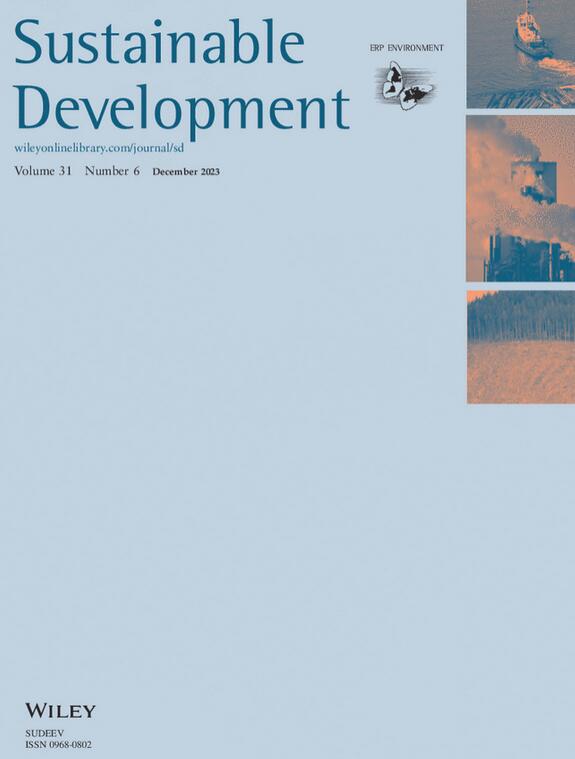Does the closure of polluting enterprises improve rural livelihoods? Evidence from rural China
IF 9.9
1区 环境科学与生态学
Q1 DEVELOPMENT STUDIES
引用次数: 0
Abstract
In response to an increasingly dire pollution scenario, the Chinese government initiated the largest and most extensive environmental inspection campaign in history starting in 2016. Numerous polluting enterprises were closed due to environmental concerns in the rural areas. Drawing on two‐period panel data from the China Rural Development Survey, this study revealed the inherent mechanism of the polluting enterprises closure on local rural livelihoods using the difference‐in‐differences method and structural equation model, with reference to the sustainable livelihood framework. Results showed that shuttering polluting enterprises enhanced rural households' livelihood capital, notably in human, natural, and physical aspects, and promoted labor migration. Additional heterogeneous analysis revealed that the enhancements were notably more pronounced in Southern China and among affluent demographics. Based on the findings, we suggested the local government should support the development of sustainable agriculture and green industries and pay more attention to vulnerable populations when making policy decisions. The use of mandatory directives, such as shutting down polluting enterprises, is a common strategy in developing countries. This study presents an analytical framework for understanding the impact of environmental governance on the livelihoods of rural households in developing countries, contributing to a better balance between rural environmental management and livelihood improvement in these regions.关闭污染企业能否改善农村生活?来自中国农村的证据
为应对日益严峻的污染形势,中国政府从 2016 年开始启动了史上规模最大、范围最广的环保督查行动。由于农村地区的环境问题,众多污染企业被关闭。本研究利用中国农村发展调查的两期面板数据,参照可持续生计框架,采用差分法和结构方程模型,揭示了污染企业关闭对当地农村生计的内在影响机制。结果显示,关闭污染企业提高了农村家庭的生计资本,尤其是在人力、自然和物质方面,并促进了劳动力迁移。额外的异质性分析表明,在华南地区和富裕人口群体中,关停污染企业对农户生计资本的提升更为明显。根据研究结果,我们建议地方政府应支持可持续农业和绿色产业的发展,并在决策时更多地关注弱势群体。在发展中国家,使用强制指令(如关闭污染企业)是一种常见的策略。本研究提出了一个分析框架,用于理解环境治理对发展中国家农村家庭生计的影响,有助于更好地平衡这些地区农村环境治理与生计改善之间的关系。
本文章由计算机程序翻译,如有差异,请以英文原文为准。
求助全文
约1分钟内获得全文
求助全文
来源期刊

Sustainable Development
Multiple-
CiteScore
17.30
自引率
11.20%
发文量
168
期刊介绍:
Sustainable Development is a publication that takes an interdisciplinary approach to explore and propose strategies for achieving sustainable development. Our aim is to discuss and address the challenges associated with sustainable development and the Sustainable Development Goals. All submissions are subjected to a thorough review process to ensure that our readers receive valuable and original content of the highest caliber.
 求助内容:
求助内容: 应助结果提醒方式:
应助结果提醒方式:


